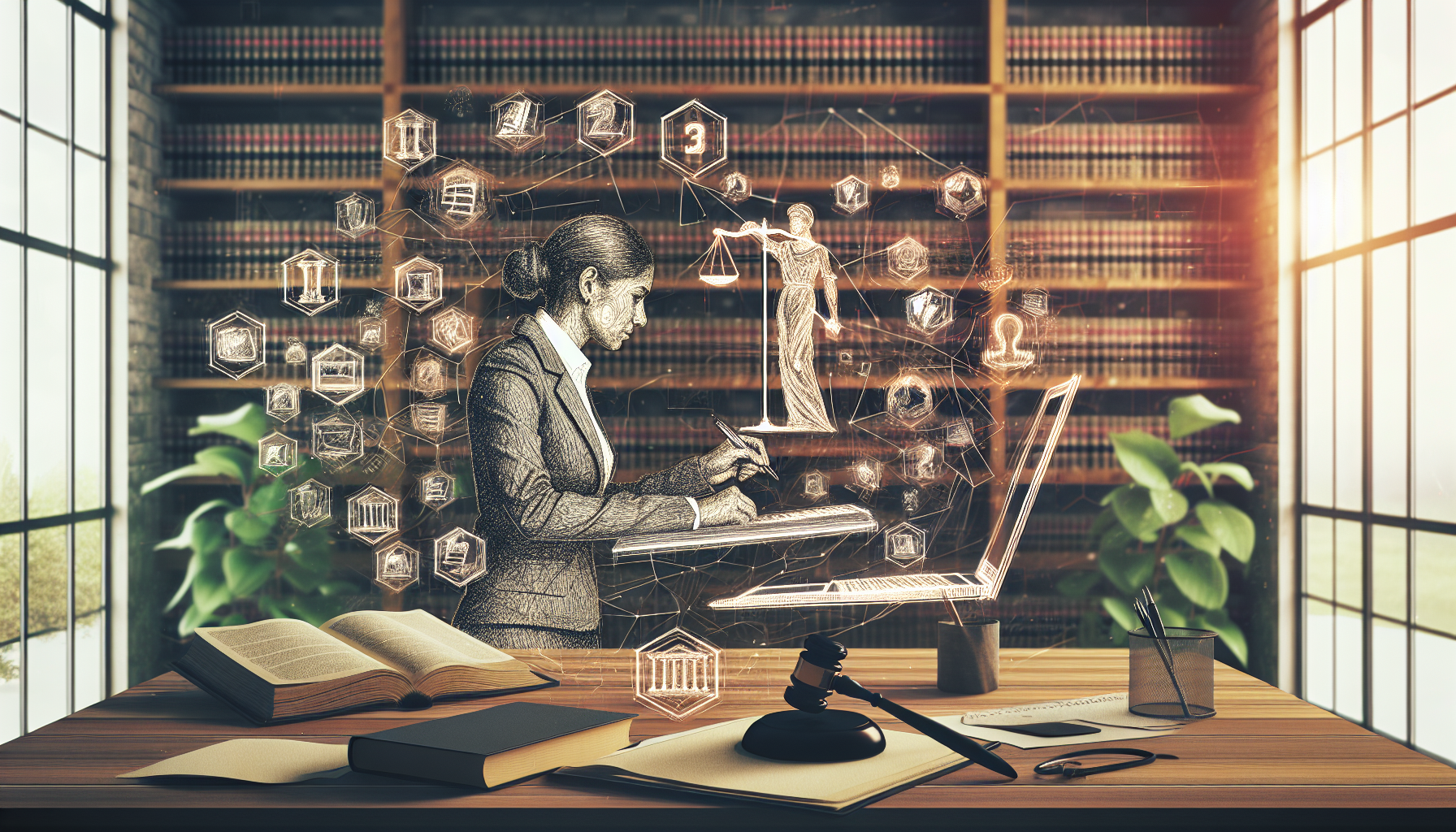
Setting the Scene: The Modern Paralegal’s Challenge
In today’s fast-paced legal environment, paralegals working in family law face numerous challenges, particularly in the discovery phase. This stage involves gathering, reviewing, and organizing a vast amount of information, which can be both time-consuming and prone to errors. The increasing volume of data and tight deadlines further compound the difficulties. Consequently, enhancing efficiency with advanced technology has become essential. Leveraging tools like ChatGPT can significantly streamline these processes, offering paralegals more time to focus on strategic tasks and deliver better outcomes for clients.
Harnessing the Power of ChatGPT: An Overview
ChatGPT, developed by OpenAI, is a sophisticated language model that utilizes artificial intelligence to generate human-like text based on given prompts. It has a wide array of applications, from drafting documents to summarizing lengthy texts. By integrating ChatGPT into the legal workflow, especially during the discovery stage, paralegals can automate routine tasks, thereby boosting efficiency and accuracy. This can include generating initial drafts of documents, filtering through client communications, and extracting pertinent data points from extensive records.
Also read:
Crafting Precision Prompts for Legal Discovery
The effectiveness of ChatGPT hinges on the quality of the prompts provided. A prompt is essentially the instruction given to the AI to generate a desired output. Here’s an introduction to creating effective prompts for different stages of the discovery process:
- Initial Information Gathering: “Summarize the key points from [document name] regarding [specific issue].”
- Data Filtering: “Extract all instances where [party name] is mentioned in the [document type].”
- Document Summarization: “Provide a concise summary of [case name] focusing on [specific legal issue].”
Refining prompts is crucial for obtaining accurate and relevant results. Tips for honing prompts include:
- Be Specific: Clearly define the scope and details required.
- Provide Context: Give background information to help focus the AI’s response.
- Iterative Feedback: Use initial outputs to fine-tune subsequent prompts for better precision.
Also read:
Summarizing Key Documents Swiftly
Handling large volumes of documents is a staple of the discovery process. ChatGPT can assist by summarizing these documents swiftly, ensuring they are comprehensive and accurate. For example, prompts like “Summarize the divorce settlement agreement of [client’s name] with a focus on asset division and custody arrangements” can yield useful summaries. Techniques to ensure summaries are effective include:
- Outline the Structure: Specify components such as “Section on custody,” “Financial agreements,” etc.
- Highlight Key Points: Direct the AI to focus on highlights and conclusions.
Seguing into client communication, these summaries can also serve as a basis for drafting initial responses and updates, saving time and ensuring consistency in communication.
Also read:
Automating Client Communication
Client communication often requires regular updates and responses. ChatGPT can draft initial communications, maintaining a professional tone and clarity. For example:
- Check-In Emails: “Draft an email to [client’s name] providing a summary of recent discovery findings and next steps.”
- Meeting Summaries: “Generate a summary of the discussion points and agreed actions from the meeting on [date] with [client’s name].”
To ensure clarity and professionalism, it’s essential to review AI-generated drafts for critical details and legal accuracy before sending. This saves substantial time while maintaining a high standard of client service.
Also read:
Advanced Data Extraction Techniques
Data extraction is another area where ChatGPT excels. Paralegals can use the model to pull relevant information from documents by employing nuanced prompts. For instance:
- Financial Information: “Extract all financial transactions related to [specific account] from [document name].”
- Timeline Construction: “List all significant dates and events from [case file] related to [specific issue].”
These techniques can expedite the discovery process by swiftly retrieving the needed information, enabling paralegals to focus on the analysis and application of the data.
Also read:
Holistic Coordination: Integrating ChatGPT with Other Tools
Integrating ChatGPT with existing legal software can create a more cohesive workflow. Combining ChatGPT with case management systems or document review tools enhances its utility. For example:
- Document Management Systems: Sync ChatGPT to pull and review documents easily.
- Communication Platforms: Use ChatGPT to generate drafts within emails or client communication platforms.
This integrated approach not only streamlines processes but also ensures a more organized and efficient management of the entire discovery phase.
Also read:
Ethical and Practical Considerations
When using AI such as ChatGPT, ethical concerns must be addressed. These include ensuring client confidentiality and data security, verifying the accuracy of AI-generated content, and maintaining a human oversight component. Following best practices allows responsible utilization of AI in family law discovery.
Also read:
The Road Ahead: Future-Proofing the Paralegal Role
The landscape of legal technology continues to evolve rapidly. Advancements in AI promise even greater efficiencies for paralegals, but this also necessitates continuous learning and adaptation. Embracing these technologies can not only future-proof the paralegal role but also enhance the quality and speed of legal services provided to clients.


